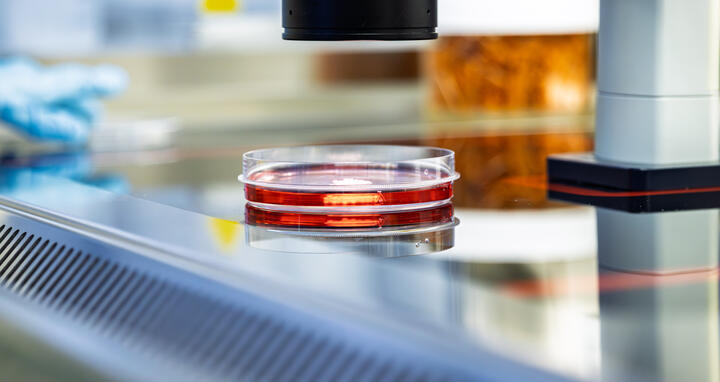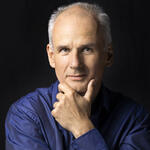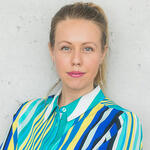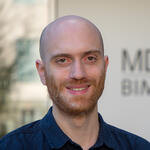Biomedical innovation in Berlin gets €30 million boost
In an ageing society, extending health-span will require not only treating illness, but also stopping disease before it starts. Such precision prevention will require a detailed understanding of the molecular and cellular changes that unfold as a person’s health gradually transitions into disease. To gain such insight, researchers must generate and analyze vast molecular and clinical data from both healthy individuals and patients. Advanced AI models will be essential to uncover patterns and mechanisms within these complex data. These insights will drive new tools, diagnostics, and therapies – advancing precision medicine to prevent disease even before symptoms appear.
The Center for AI-Accelerated Molecular Innovations in Medicine (AI2M) will help turn this vision into reality. Backed by €30.8 million in funding from the Helmholtz Association for construction and equipment, AI2M is set to break ground in 2026. The center will be located at two strategic hubs in Berlin – Mitte and Buch. Construction of the Spatial and Single-cell Biomedicine and AI hub at the Berlin Institute for Medical Systems Biology in Mitte is scheduled to be completed by 2029, with the Human Cell Model and Bioengineering hub in Buch following in 2033.
“As medicine shifts from reactive to predictive, innovation hubs like AI2M will play a pivotal role in transforming medical care – making earlier, more personalized, and more effective interventions not only possible, but a part of everyday healthcare,” says Professor Maike Sander, Scientific Director of the Max Delbrück Center and Vice President of Helmholtz Health.
Combining technology and expertise
At both hubs, researchers will work in interdisciplinary teams that will include academic medical centers and industry partners. Taking advantage of large population studies that are collecting vast amounts of data from volunteers, AI2M researchers will harness the power of AI to mine these datasets to discover biomarkers that signal disease before clinical symptoms appear, or to develop new targeted therapies.
Max Delbrück Center scientists are at the forefront of developing the technologies that AI2M will bring to bear in medical innovation. For example, the laboratories of Professor Nikolaus Rajewsky, Dr. Ashley Sanders, and Dr. Fabian Coscia have shown that single-cell and spatial multi-omic approaches can map disease progression with unprecedented resolution. Drs. Jakob Metzger, Mina Gouti, and Sebastian Diecke have pioneered high-throughput, screening platforms that use organoids grown from individual patients’ cells as models — enabling researchers to precisely map disease trajectories and test personalized therapies.
In Berlin, the Charité Universitätsmedizin Berlin and the Berlin Institute of Health at Charité will serve as key local partners to help accelerate the translation of laboratory-based medical innovations into clinical practice.
“Tackling today’s most pressing scientific challenges demands breaking down disciplinary silos. AI2M will create powerful new links between AI, engineering, biology, and medicine –enabling ideas to move more freely, technologies to converge, and diverse teams to collaborate seamlessly, says Dr. Stan Gorski, Head of Strategic Initiatives at the Max Delbrück Center. “Breakthroughs arise at the intersections.”
Text: Gunjan Sinha
Further information
Contacts
Dr. Stan Gorski
Head, Strategic Intiatives
Max Delbrück Center
stan.gorski@mdc-berlin.de
Jana Schlütter
Editor and Deputy Head, Communications
Max Delbrück Center
jana.schluetter@mdc-berlin.de or presse@mdc-berlin.de
- Max Delbrück Center
-
The Max Delbrück Center for Molecular Medicine in the Helmholtz Association aims to transform tomorrow’s medicine through our discoveries of today. At locations in Berlin-Buch, Berlin-Mitte, Heidelberg and Mannheim, our researchers harness interdisciplinary collaboration to decipher the complexities of disease at the systems level – from molecules and cells to organs and the entire organism. Through academic, clinical, and industry partnerships, as well as global networks, we strive to translate biological discoveries into applications that enable the early detection of deviations from health, personalize treatment, and ultimately prevent disease. First founded in 1992, the Max Delbrück Center today inspires and nurtures a diverse talent pool of 1,800 people from over 70 countries. We are 90 percent funded by the German federal government and 10 percent by the state of Berlin.











